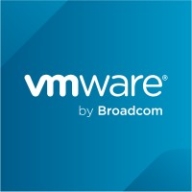

VMware NSX and Cisco ACI compete in the network virtualization and software-defined networking category. VMware NSX seems to have the upper hand in cost-effectiveness and support, while Cisco ACI stands out for its advanced feature set and performance.
Features: VMware NSX offers security capabilities, micro-segmentation, and network virtualization. Cisco ACI provides centralized management, automation features, and integration with Cisco hardware, making its features more robust for complex environments.
Room for Improvement: VMware NSX needs better documentation and simpler configuration processes. Cisco ACI should focus on reducing setup complexity and addressing its steep learning curve. Users find Cisco ACI documentation less problematic compared to VMware NSX.
Ease of Deployment and Customer Service: VMware NSX is easier to deploy due to straightforward setup and strong customer support. Cisco ACI's deployment is complex, but excellent customer service helps users manage its intricacies. Both products benefit from effective support services that mitigate deployment challenges.
Pricing and ROI: VMware NSX is more cost-effective with lower setup costs, appealing to budget-conscious businesses. Cisco ACI, though more expensive, offers better long-term ROI due to its advanced features and significant network performance improvements.
Efficient utilization leads to cost savings and efficiency gains.
The technical support from Cisco is satisfactory.
When issues occur, the TAC is not able to provide much support, leading to difficulties in finding RCAs.
They were always helpful.
They are quick and understand things easily, so the support is aligned very effectively.
Our technicians have a good support experience from the company.
The solution offers high performance and scalability with connectivity options up to 100 GS.
The scalability of Cisco ACI supports our organization's growth effectively.
Expanding your network or your data center with Cisco ACI is not an issue; scalability is a good feature.
There is a high level of satisfaction with its ability to scale.
For stability, Cisco ACI rates a nine or 9.5 because I've seen three customers using Cisco ACI and once deployed, the solution is very stable.
The product performs at 99% efficiency without any showstoppers or significant issues.
For stability, I would rate VMware NSX as a nine out of ten.
Their lack of on-ground offices can result in business losses.
The initial configuration and integration within our existing environment were not easy.
The pricing for the product is another area for improvement as I'm not satisfied nowadays.
The licensing model is expensive and could be more flexible, especially after Broadcom bought VMware.
In general, Cisco ACI is on the higher side; it's not a cheap solution.
Cisco's pricing tends to be on the higher end compared to other vendors.
The cost of VMware NSX is considered high.
VMware NSX is a little higher in price compared to the competition.
There is room for improvement in terms of pricing.
Cisco ACI provides substantial capability; you can design your network accordingly and it's part of the SDN family, providing many benefits to the organization, especially when moving from traditional network infrastructure.
Its features, like easy application deployment, short deployment time for new applications or software, and eliminating the hassle of STP, are appreciated.
It is essential for growing our data center connectivity and enablement for our customers.
Micro-segmentation enhances security and provides more secure data in your data center.
The most powerful feature of VMware NSX is the micro-segmentation that allows us to separate the different protocols our application works with.
I value the ability to dynamically configure our network on the fly using VMware NSX.
| Product | Market Share (%) |
|---|---|
| Cisco ACI | 43.5% |
| VMware NSX | 40.7% |
| Other | 15.799999999999997% |


| Company Size | Count |
|---|---|
| Small Business | 21 |
| Midsize Enterprise | 18 |
| Large Enterprise | 87 |
| Company Size | Count |
|---|---|
| Small Business | 33 |
| Midsize Enterprise | 23 |
| Large Enterprise | 69 |
Cisco ACI provides advanced capabilities with features like seamless integration with VMware and APIs for programmability. It offers centralized management for streamlined operations, efficient micro-segmentation, and robust security, addressing modern data center needs.
Cisco ACI brings automation to data center infrastructure, enabling transitions from legacy to modern environments with centralized management. Organizations benefit from optimized server farms, seamless integration with VMware, and support for Kubernetes, making it suitable for large-scale environments. Offering support for healthcare, finance, and public sectors, Cisco ACI facilitates tasks such as virtual networking and multi-site connectivity with application-centric and network-centric designs.
What are the key features of Cisco ACI?In the healthcare industry, Cisco ACI supports secure and efficient data management, accommodating regulatory needs and enhancing patient data handling. Financial institutions benefit from robust security and seamless integration with existing infrastructures, facilitating smooth transaction processing. In the public sector, it's utilized for reliable network management and servicing a diverse range of applications.
VMware NSX is a comprehensive tool for network virtualization and security, offering advanced features like micro-segmentation and multi-cloud networking to enhance scalability and management efficiency within enterprises.
VMware NSX revolutionizes enterprise networking by integrating security and scalability into one streamlined platform. With capabilities like dynamic policy updates and automation, it simplifies complex configurations and provides robust API integration. Its support for Layer 4 and 7 load balancing, along with its seamless integration in multi-cloud environments, makes it a preferred choice among companies. Although deployment speed and management console features require refinement, NSX is an effective solution for private cloud and hybrid environments, enabling centralized orchestration and management of complex networks.
What are the key features of VMware NSX?
What benefits and ROI should users consider?
In the tech industry, VMware NSX is instrumental in managing private and hybrid cloud environments, allowing companies to replace traditional networking with software-defined networks. In finance, it helps secure transactional data through micro-segmentation. Healthcare organizations leverage its flexibility for managing sensitive patient information securely and integrating cloud services.
We monitor all Network Virtualization reviews to prevent fraudulent reviews and keep review quality high. We do not post reviews by company employees or direct competitors. We validate each review for authenticity via cross-reference with LinkedIn, and personal follow-up with the reviewer when necessary.